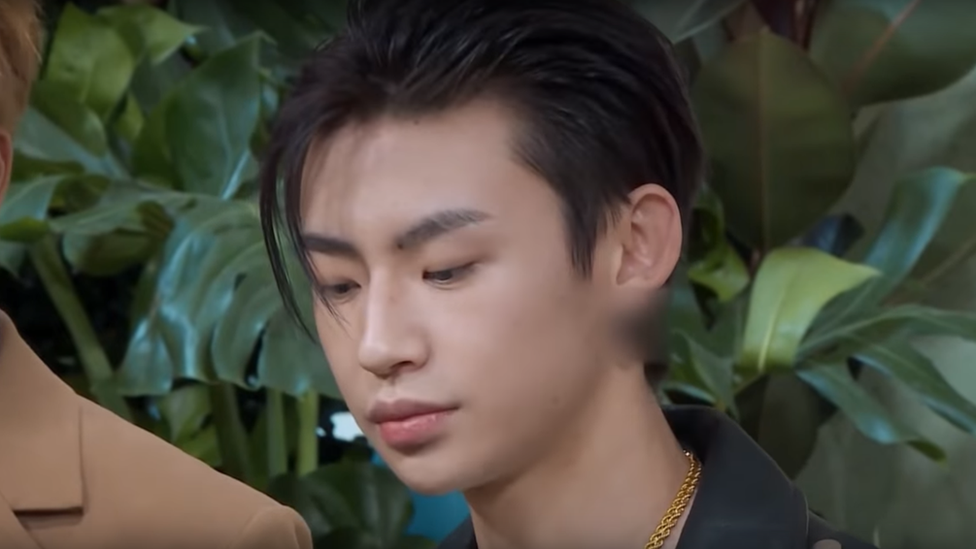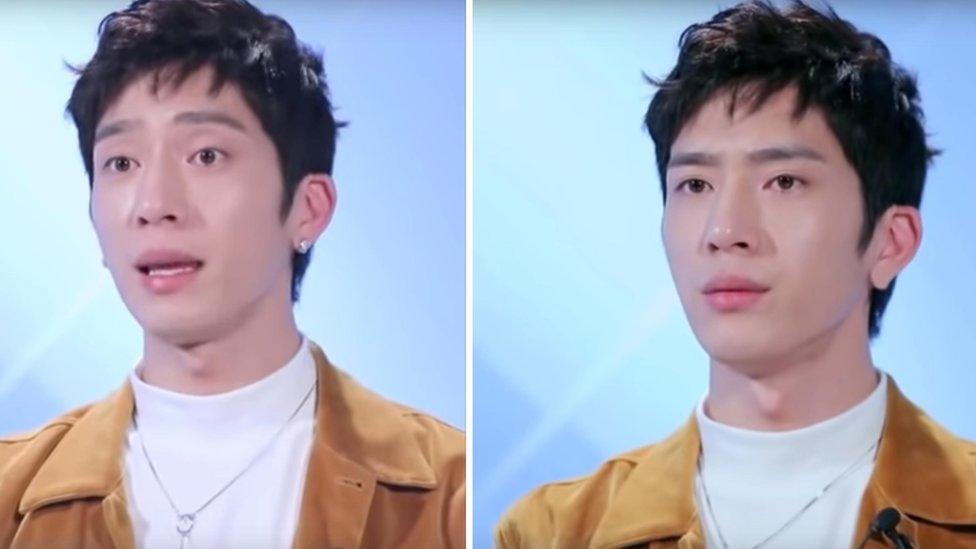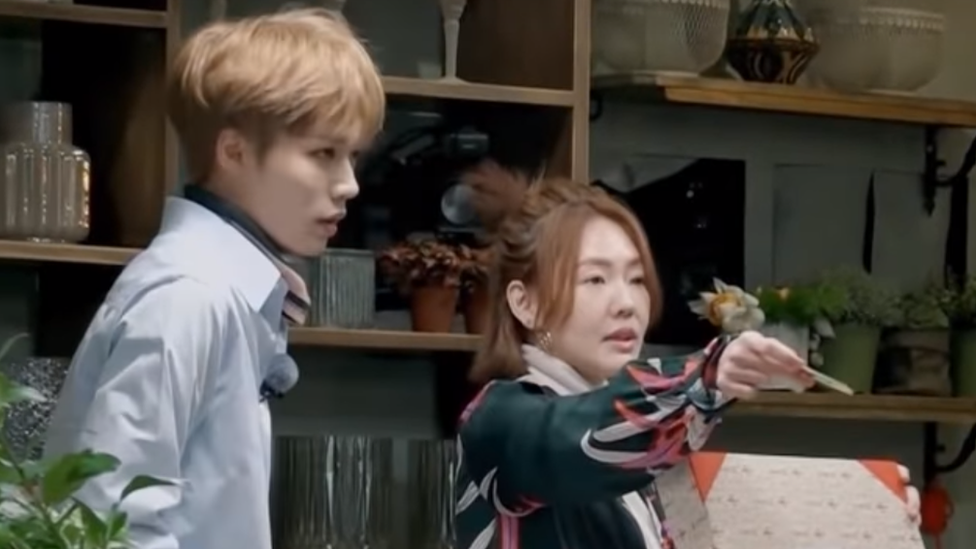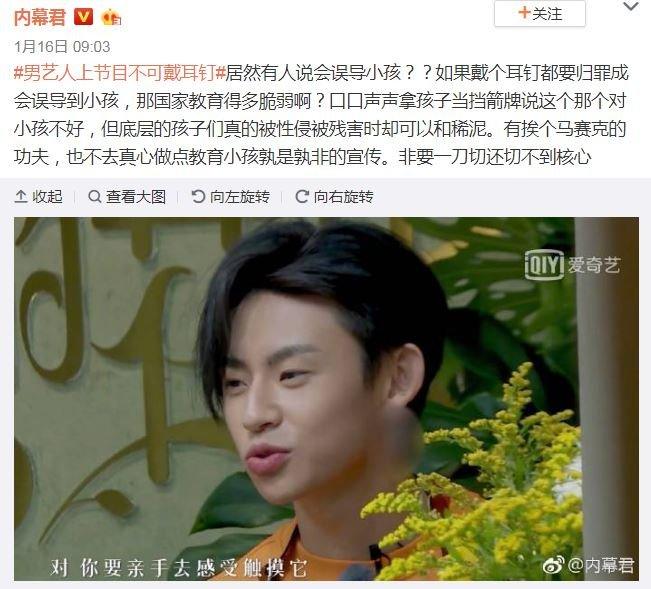Why is Chinese media blurring these actors' ears?
- Published

Actor Wang Linkai's ears are blurred in an episode of the TV show Sister's Flower Shop
The decision by a popular Chinese video streaming platform to censor the ears of actors wearing earrings has sparked a heated debate online.
Images taken from programmes produced by the Netflix-like streaming service iQiyi, show actors with large blobs covering their earlobes and have been widely shared online.
The hashtag #MaleTVStarsCantWearEarrings has been used more than 88,000 times on Weibo where many users are expressing their outrage at the censorship.
The controversy is the latest example of the heavy-handed blurring of TV programmes in China. Hip-hop culture, tattoos and LGBT symbols have all been censored.

Some on Weibo pointed out the difference between actor Jing Boran's ears in episode one (L) and episode three (R) of the TV show 'I Actor'
Many took to social media to argue that the censorship was driven by a desire to protect "traditional" gender roles.
The effect of male celebrities displaying more "effeminate" characteristics has become a controversial issue in China in recent years.
One Weibo user jokingly wrote: "Men who wear earrings are sissies, Genghis Khan's a sissy, we should block him, and kick him out of our history books."
Others were quick to suggest a double standard, given that actresses did not have their earrings hidden.
"Who can say this isn't sexism? Why can't men do this? We've simply gone back 100 years," one user wrote.
While another called the move "unspoken sexual discrimination".

Weibo users commented on the difference between Lin Yanjun's ears and those of his female co-star Dee Hsu
While the majority of comments were critical of the blurring, some wrote that they agreed with the decision.
"I support the government moving to rule on this," one user wrote, "men should look like men."
Some others commented to say they thought men wearing earrings was "strange" and "effeminate".

Analysis: Kerry Allen, BBC Monitoring
All TV broadcasters in China are state-owned, heavily regulated and subject to censorship.
Domestic programmes must often submit papers to their local Communist party bureau at least two months in advance for official approval. For foreign TV broadcasts, this process can take even longer.
Regulation has also extended beyond television to digital platforms, owing to people increasingly watching TV over the internet, and even broadcasting their own content. The popularity of live streaming apps unsettles the Chinese government, who want absolute control over anything that is broadcast.
However, social media users have noted their dissatisfaction over a growing list of what they can and cannot watch.

One Weibo user commented to question why actors wearing earrings was such a big issue.
"Some people actually say this would negatively influence children. If wearing a stud is to blame for negatively influencing a child, how vulnerable is the country's education system?"


Various Chinese news publications report that the country's top media regulator has not issued a statement on the issue, despite repeated attempts to contact them.